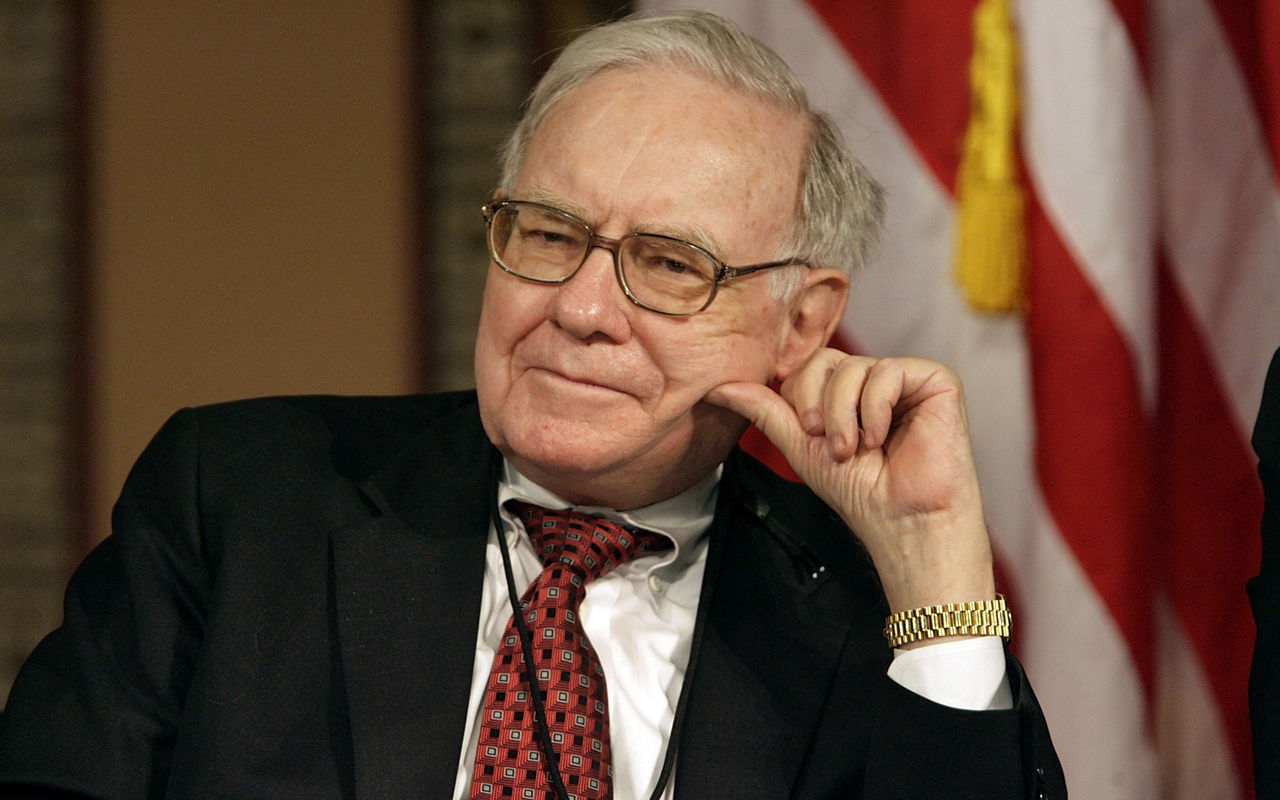Stories That Move the Economy
Economist Robert Shiller predicted runaway home prices and the stock market bubble of the late 1990s. Now he’s writing about the influence of viral narratives.

Profit and prosper with the best of Kiplinger's advice on investing, taxes, retirement, personal finance and much more. Delivered daily. Enter your email in the box and click Sign Me Up.
You are now subscribed
Your newsletter sign-up was successful
Want to add more newsletters?

Delivered daily
Kiplinger Today
Profit and prosper with the best of Kiplinger's advice on investing, taxes, retirement, personal finance and much more delivered daily. Smart money moves start here.

Sent five days a week
Kiplinger A Step Ahead
Get practical help to make better financial decisions in your everyday life, from spending to savings on top deals.

Delivered daily
Kiplinger Closing Bell
Get today's biggest financial and investing headlines delivered to your inbox every day the U.S. stock market is open.

Sent twice a week
Kiplinger Adviser Intel
Financial pros across the country share best practices and fresh tactics to preserve and grow your wealth.

Delivered weekly
Kiplinger Tax Tips
Trim your federal and state tax bills with practical tax-planning and tax-cutting strategies.

Sent twice a week
Kiplinger Retirement Tips
Your twice-a-week guide to planning and enjoying a financially secure and richly rewarding retirement

Sent bimonthly.
Kiplinger Adviser Angle
Insights for advisers, wealth managers and other financial professionals.

Sent twice a week
Kiplinger Investing Weekly
Your twice-a-week roundup of promising stocks, funds, companies and industries you should consider, ones you should avoid, and why.

Sent weekly for six weeks
Kiplinger Invest for Retirement
Your step-by-step six-part series on how to invest for retirement, from devising a successful strategy to exactly which investments to choose.
Yale professor and Nobel laureate Robert Shiller is known for his contributions to the field of behavioral finance, which marries the disciplines of psychology and economics. Now, he wants to open the economic tent even wider to bring in the study of the stories that rise to prominence in societies — tales that go viral, in other words — because he thinks they have a lot to do with steering the course of the economy. He calls the new field narrative economics, which is also the title of his new book (Narrative Economics: How Stories Go Viral & Drive Major Economic Events, Princeton University Press, 2019).
Shiller defines an economic narrative as a contagious story that has the potential to change how people make economic decisions — say, whether to launch a business, invest in a volatile asset or tighten one’s purse strings.
The narratives swirling around the Bitcoin phenomenon, for instance, encompass themes of bubbles, anarchism, human interest, fear of inequality and the future, Shiller notes. Fans of the cryptocurrency don’t have to understand how it works to believe in it. “There’s a flash of passion about it, like a hit song or a hit movie,” Shiller told me in a recent interview. “There’s something that touches a nerve. Economic narratives are like that.”
From just $107.88 $24.99 for Kiplinger Personal Finance
Become a smarter, better informed investor. Subscribe from just $107.88 $24.99, plus get up to 4 Special Issues

Sign up for Kiplinger’s Free Newsletters
Profit and prosper with the best of expert advice on investing, taxes, retirement, personal finance and more - straight to your e-mail.
Profit and prosper with the best of expert advice - straight to your e-mail.
Kiplinger founder Willard Kiplinger plays a cameo role in the book, when Shiller quotes a 1930 Kiplinger publication (presumably The Kiplinger Letter), listing causes of the Great Depression. Among them: “The development of machines which do the work of many men under the direction of a few men.” The modern-day trope for this machine-versus-man showdown is artificial intelligence.
Us or them. For now, artificial intelligence is talked about a lot. But with a full-employment economy, people aren’t scared by AI, Shiller says. Still, like the perennial narrative of the Great Depression, the one about job-eating robots could become more malevolent under the right circumstances. “I worry that if there’s a recession, it might kindle a rebirth of the machines-replace-people narrative, and it could worsen the recession,” Shiller says. “People don’t want to spend money if they think they’ll lose their job forever, and that propels the whole economy into a recession.”
Shiller points out that he has been tracking narratives his entire career. They played a crucial role in his warnings about the stock market bubble of the late 1990s, which burst shortly after publication in 2000 of the first edition of his bestseller Irrational Exuberance. The 2005 edition sounded alarms about the housing bubble, before the collapse of that market precipitated the financial crisis.
As for what he makes of the market today, Shiller says he favors bargain-priced stocks over the growth-oriented fare that has largely driven the current bull market. “I think that you might tilt toward value, even though it hasn’t worked lately. But that’s the time to get in, when it hasn’t worked.”
Is there a narrative circulating today that worries him? “Low, long-term interest rates, especially in Europe and other places, suggest a sort of bubble in the bond market,” says Shiller. “It seems like there might be a big correction there and that’s an asset class that’s traditionally thought to be the safest. It’s not clear that it is.”
Whatever Shiller figures out about the bond market, he’s clear about the need for policymakers to pay attention to the lessons that economic narratives have for us when it comes to reading the tea leaves about financial and housing markets. Writes Shiller: “Stories and legends from the past are scripts for the next boom or crash.”
Profit and prosper with the best of Kiplinger's advice on investing, taxes, retirement, personal finance and much more. Delivered daily. Enter your email in the box and click Sign Me Up.

Anne Kates Smith brings Wall Street to Main Street, with decades of experience covering investments and personal finance for real people trying to navigate fast-changing markets, preserve financial security or plan for the future. She oversees the magazine's investing coverage, authors Kiplinger’s biannual stock-market outlooks and writes the "Your Mind and Your Money" column, a take on behavioral finance and how investors can get out of their own way. Smith began her journalism career as a writer and columnist for USA Today. Prior to joining Kiplinger, she was a senior editor at U.S. News & World Report and a contributing columnist for TheStreet. Smith is a graduate of St. John's College in Annapolis, Md., the third-oldest college in America.
-
 Over 65? Here's What the New $6K Senior Bonus Deduction Means for Medicare IRMAA
Over 65? Here's What the New $6K Senior Bonus Deduction Means for Medicare IRMAATax Breaks A new deduction for people over age 65 has some thinking about Medicare premiums and MAGI strategy.
-
 U.S. Congress to End Emergency Tax Bill Over $6,000 Senior Deduction and Tip, Overtime Tax Breaks in D.C.
U.S. Congress to End Emergency Tax Bill Over $6,000 Senior Deduction and Tip, Overtime Tax Breaks in D.C.Tax Law Here's how taxpayers can amend their already-filed income tax returns amid a potentially looming legal battle on Capitol Hill.
-
 5 Investing Rules You Can Steal From Millennials
5 Investing Rules You Can Steal From MillennialsMillennials are reshaping the investing landscape. See how the tech-savvy generation is approaching capital markets – and the strategies you can take from them.
-
 How I'm Going to Invest My Mega Millions Lottery Jackpot
How I'm Going to Invest My Mega Millions Lottery JackpotThe odds of winning the Mega Millions lottery are effectively zero, but here's how I'm investing my fortune should I hit the jackpot.
-
 Four Random Facts and Thoughts About Warren Buffett
Four Random Facts and Thoughts About Warren BuffettIf I love Warren Buffett so much why don't I just marry him?
-
 Investing in Gold Is Dumb
Investing in Gold Is DumbStocks are better than gold for both generating wealth and offering protection against inflation.
-
 What's So Scary About a Mega-Cap Tech Bull Market?
What's So Scary About a Mega-Cap Tech Bull Market?Bears say the market can't keep rallying when only five mega-cap tech stocks are driving returns, but history suggests otherwise.
-
 We Are Not in a Bull Market
We Are Not in a Bull MarketIt takes more than a 20% gain off the low to proclaim the beginning of a new bull market.
-
 Why I Don't Buy Stocks
Why I Don't Buy StocksIt's nearly impossible to beat the market – but it is cheap and easy to match it.
-
 If Home Prices Fall, Will Stocks Follow?
If Home Prices Fall, Will Stocks Follow?Analysts predict home prices will decline over the next year. But what does that mean for the stock market?
-
 Is A Recession Looming? Why History Says We Shouldn’t Panic
Is A Recession Looming? Why History Says We Shouldn’t Panicinvesting From rising interest rates to battle growing inflation and supply chain issues that don’t show any hint of resolving, warning signs of a recession are becoming hard to ignore. Despite the state of our current economy, there are many reasons not to panic about a possible recession.